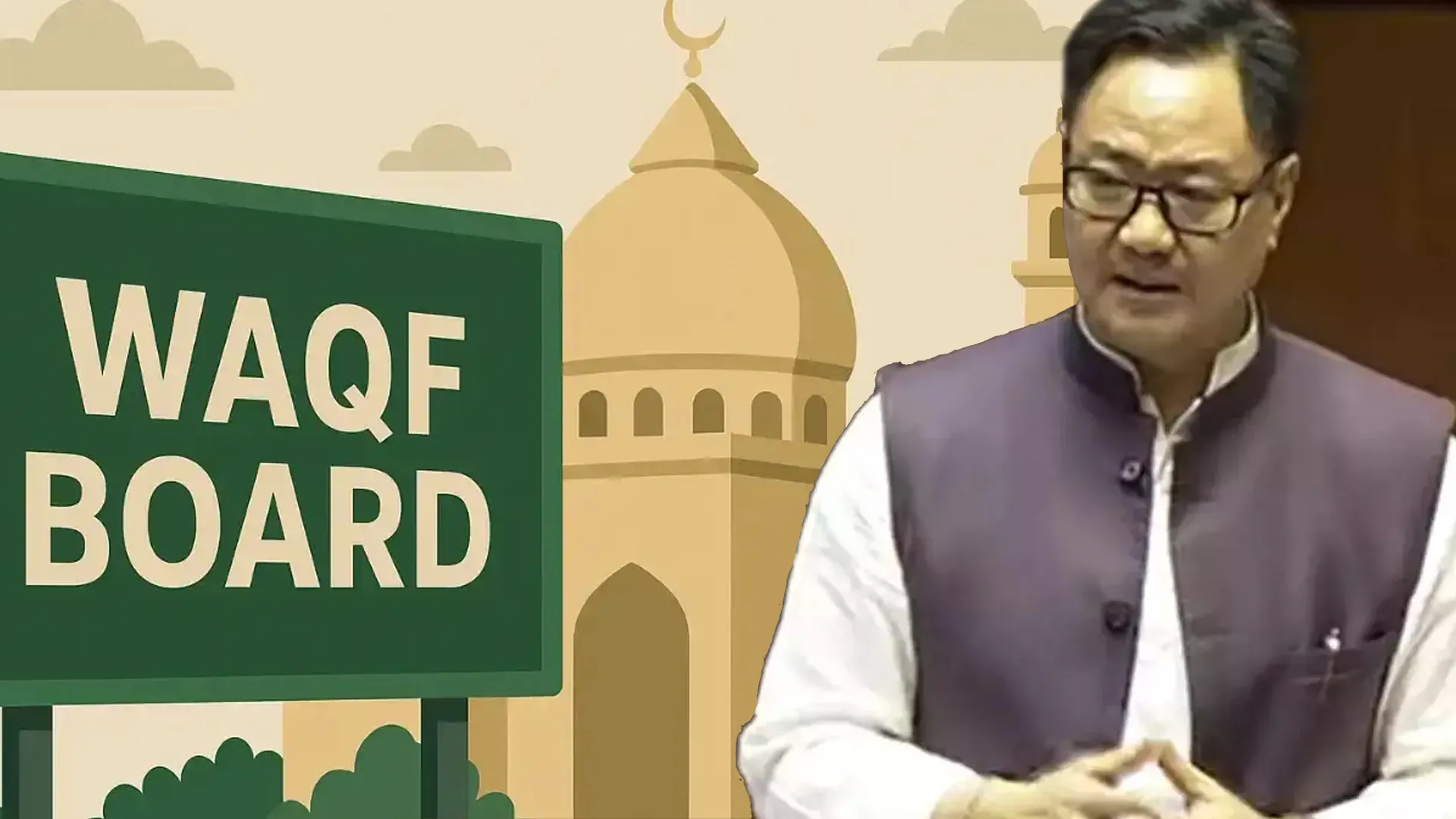The Rajya Sabha met on April 3, 2025, to consider the Waqf Amendment Bill 2025 and the Mussalman Wakf Repeal Bill 2024. The session commenced with Vice President Jagdeep Dhankhar’s address on the day of the Rajya Sabha. Leader of Opposition Mallikarjun Kharge rose to voice his strong objection over BJP MP Anurag Thakur’s statement in the Lok Sabha against Waqf properties, asking for an apology.
The Waqf Amendment Bill 2025, which was cleared by the Lok Sabha after a heated 12-hour debate last night, was brought to the Rajya Sabha by Union Minister Kiren Rijiju. The bill was voted on by 288 MPs for and 232 against, with opposition amendments rejected.
Kiren Rijiju Defends Waqf Bill, Seeks Opposition’s Support
Union Minister of Minority Affairs Kiren Rijiju introduced the bill, calling upon the opposition to support it. “”I would like to appeal to the Congress and other parties to come and support this bill,” Rijiju stated. Rijiju contended that the appropriate utilization of Waqf resources could significantly improve India’s development, saying, “Right use of Waqf can transform India.”
#WATCH | Speaking in Rajya Sabha on Waqf Amendment Bill 2025, Union Minister Kiren Rijiju says, “Just before implementation of model code of conduct ahead of 2014 general elections, on March 5, 2014, UPA govt denotified 123 prime properties and handed them over to Delhi Waqf… pic.twitter.com/bTcFIcCLgM
— ANI (@ANI) April 3, 2025
He also pointed out the enormous size of Waqf properties in India, stating that the number of Waqf properties has increased manifold over the years. “As of today, there are 8.72 lakh Waqf properties. In 2006, the Sachar Committee estimated the earnings from 4.9 lakh Waqf properties at Rs 12,000 crore. You can imagine the income these properties must be generating now,” Rijiju informed the Rajya Sabha.
UPA’s 2013 Waqf Amendments vs. Present Bill
Rijiju contrasted the legislative process of the present bill with the changes brought about by the UPA government in 2013. He noted that the current deliberations were more comprehensive. “In 2013, during the elections, the UPA government introduced certain changes. A Joint Parliamentary Committee (JPC) was formed then as well. The select committee at that time had 13 members, whereas now we have 31 members. There were 22 sittings back then; this time, we had 36. Earlier, 14 states participated in discussions, while this time, 25 state governments and the Minority Commission took part,” he said.
“We Don’t Want to Hurt Religious Sentiments”: Rijiju
Allaying fears, Rijiju assured Parliament that the government did not intend to violate religious rights. “We don’t want to hurt anyone’s religious feelings,” he stated firmly. He urged opposition parties to take a look at the long-term gains of the bill and reiterated that the government is still committed to protecting the interests of all communities.
Opposition Expresses Concern, BJP Replies Criticism
The bill has been controversial, with opposition leaders accusing it of targeting the Muslim community. Opposition MPs have said that the bill gives too much government authority over Waqf properties, reducing religious autonomy.
But, BJP leaders refuted these allegations, saying that the bill only addresses property management and not religious practice. Union Home Minister Amit Shah jumped into the debate, making it clear that donors and administrators of Waqf properties can only be Muslims. “A manager/administrator of a Waqf—a charitable endowment—and the donor can only be from the Muslim community.”. Non-Muslims have been made part of a Waqf Board or Council for administrative reasons and to make sure that any donation is being utilized for the purpose it is intended for,” Shah explained.
Manipur President’s Rule & Other Parliamentary Discussions
Besides the Waqf Bill, Home Minister Amit Shah is also likely to introduce a motion in the Rajya Sabha to impose President’s Rule in Manipur. While this, the Lok Sabha is going to deliberate The Coastal Shipping Bill, 2024, to be proposed by Union Minister Sarbananda Sonowal.
With the controversy over the Waqf Amendment Bill 2025 heating up, everybody’s attention is still focused on Rajya Sabha, where the bill’s fate will be determined in the days to come.






















